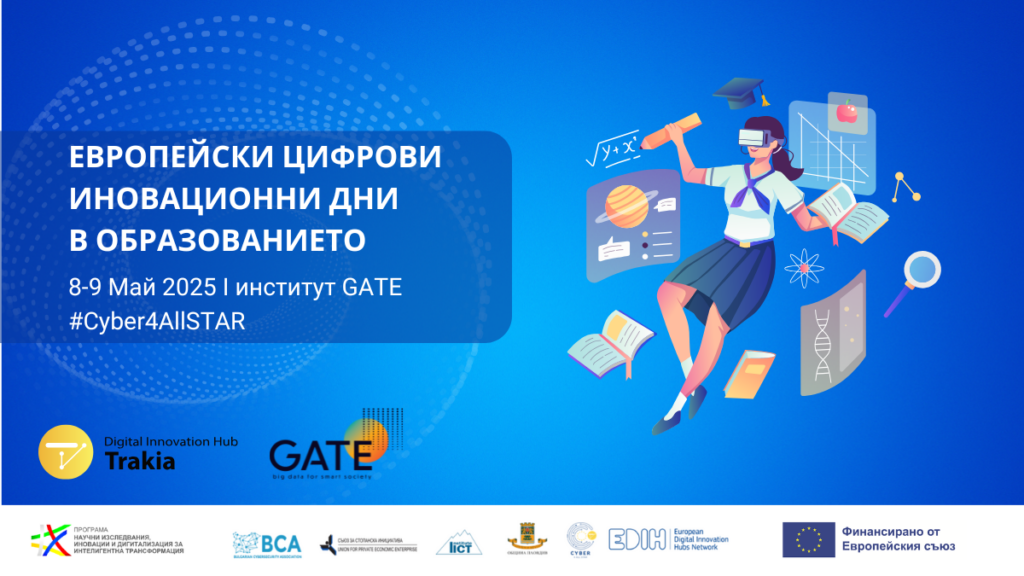On 8 and 9th May 2025 the GATE Institute at the Sofia University “St. Kliment Ohridski (SU) hosted the special consulting events “European Digital Innovation Days in Education“, part of the Cyber4AllSTAR project.
The two-day forum was attended by representatives of government institutions, academia, business and civil society, the event has become a leading platform for the exchange of experiences, ideas and innovative practices for digital transformation of education.
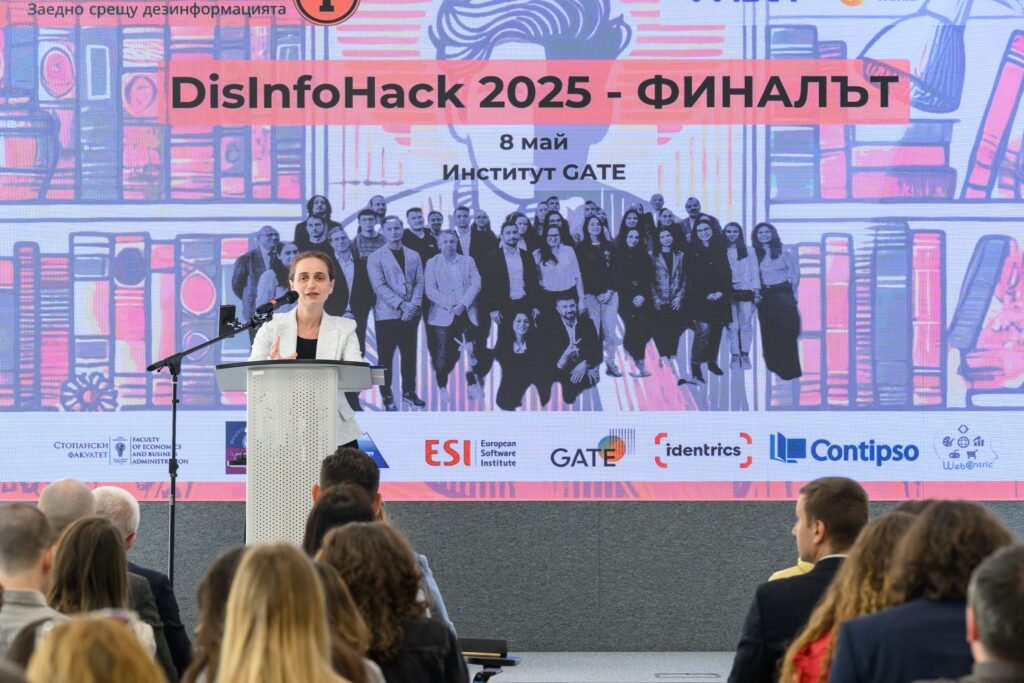 Yordanka Chobanova
Yordanka Chobanova
The first day was opened with greetings from Prof. Dr. Tony Spasov (Sofia University), Prof. Sylvia Ilieva (GATE Institute), Dr. Hristian Daskalov (EDIH Trakia), and Ms. Yordanka Chobanova, Head of the European Commission Representation in Bulgaria, who stressed the need for inter-institutional cooperation in the fight against disinformation.
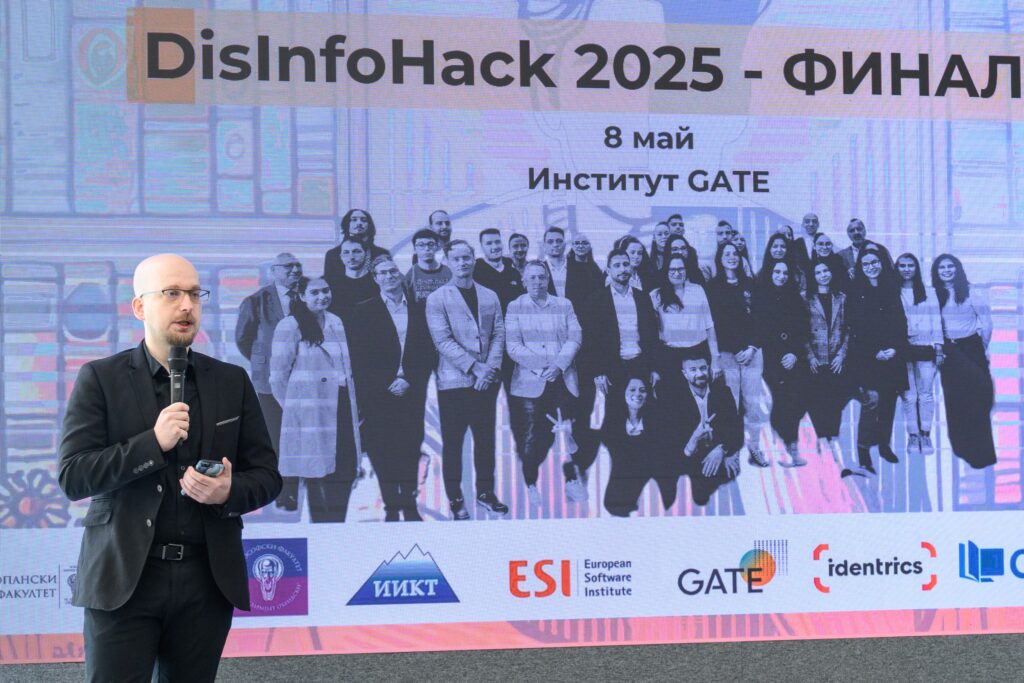
Hristian Daskalov – Chairman of EDIH Trakia
The event started with the final of the first “slow” hackathon in Bulgaria DisinfoHack 2025 – part of the CoDE project. Within two months, 72 students, 60 of whom finalised their projects, worked in 12 teams under the mentorship of experts from 10 universities and organisations. Topics included disinformation narratives about the Eurozone, the war in Ukraine, NATO and migration. Three teams were awarded, with the top two winning prizes from the EC Representation – a visit to Brussels and an internship at Identrics. The final was part of the “European Digital Innovation Days in Education”, as a natural extension of the project’s efforts Cyber4AllSTAR to promote digital skills and critical thinking, through hands-on work with data and technology, and the development of new digital tools to support education.
Three teams were awarded cash prizes, a visit to Brussels organised for the top two teams by the European Commission Representation in Bulgaria, one-month internships at Identrics, participation certificates and thematic books, while Fortinet provided a consolation prize to the fourth-placed team.
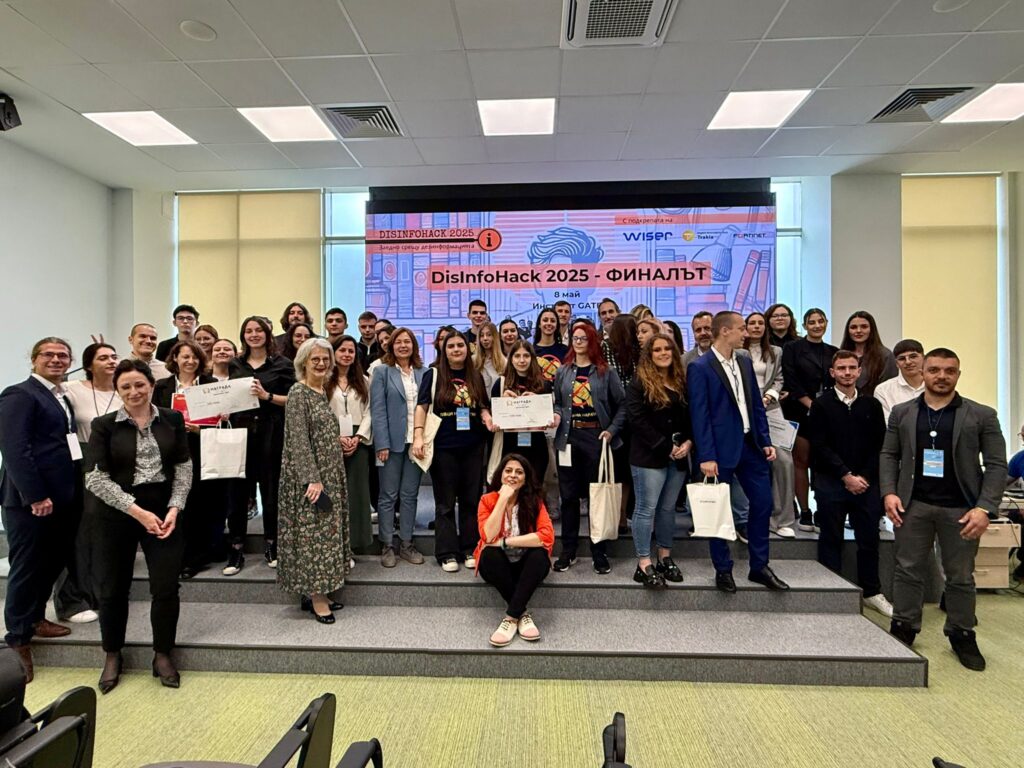
DisinfoHack 2025 showed how innovation, academia and technology can come together in the fight for a more informed and sustainable society and how important the development of new technological tools are for improving the quality of education in Bulgaria.
One of the key sessions of the European Digital Innovation Days in Education was held under the theme “Skills for the Future” and brought together leading experts in technology, education and cyber security for a frank conversation about the needs of modern education in the digital age.
The moderator of the session was Iglika Ivanova from the Media Literacy Coalition, who focused the conversation on specific challenges and opportunities related to the development of digital skills, critical thinking and security in the online environment.
Part of the discussion was Dr. Maria Yurukova, lecturer at the Department of European Studies at Sofia University, who emphasized the need for systematic integration of media literacy in educational programs and the experience of CoDE Academy in training on the recognition of misinformation. Dr. Yolina Petrova, AI & Data Solutions Manager at Identrics and lecturer at NBU, focused on the role of artificial intelligence and the need for trained personnel in the context of AI transformation, while Theodore Panayotov from Digital Coalition spoke about the importance of communities and access to digital education for all social groups;
Ruslana Margova from Institute GATE and Brod shared practices for introducing innovative technologies in education and promoting interdisciplinary learning, while Peyo Staribratov, co-founder of Skill Catalyst, emphasized how practical skills and joint work with business can reduce the gap between academic knowledge and the real needs of the labor market.
Angel Georgiev, founder of Syndeo and Znam.be, took part in the discussion by presenting his experience in creating technological solutions for learning through interactive platforms and artificial intelligence.
The main conclusion of the discussion was that in order to prepare young people for the digital future, the education system needs to open up to collaboration with technology companies, integrate digital skills training and provide an environment for active participation and content creation.
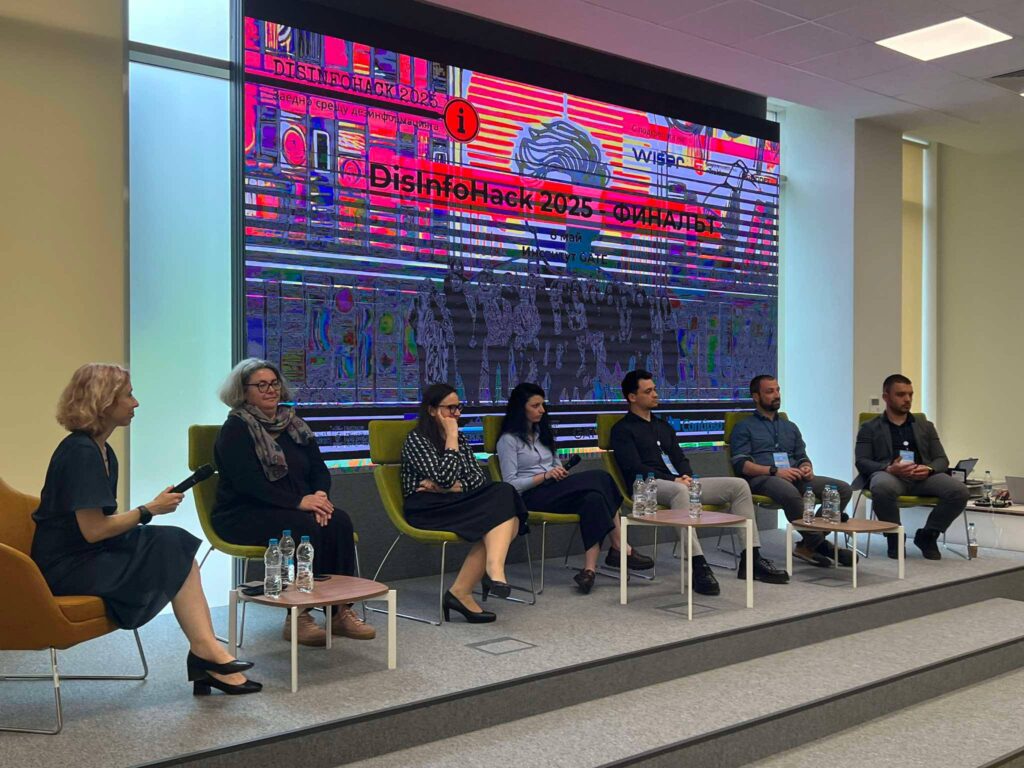
This session showed that the future of education lies in the skills that will allow us not just to use technology, but to understand, create and manage it responsibly.
After the inspiring discussion on “Skills of the Future”, the programme of the first day of the European Digital Innovation Days in Education continued with two parallel workshops that gave participants the opportunity to deepen their knowledge through practical exercises and sharing experiences in a real-life environment.
The workshop “Information and Misinformation in the Digital Environment“, moderated by Dr. Maria Yurukova, Department of European Studies, Faculty of Philosophy, Sofia University covered key aspects of the recognition, analysis and counteraction of disinformation in an online environment. Participants discussed how critical thinking and fact-checking skills can be integrated into education. The workshop also focused on media literacy techniques used in CoDE Academy and the DisinfoHack Hackathon.
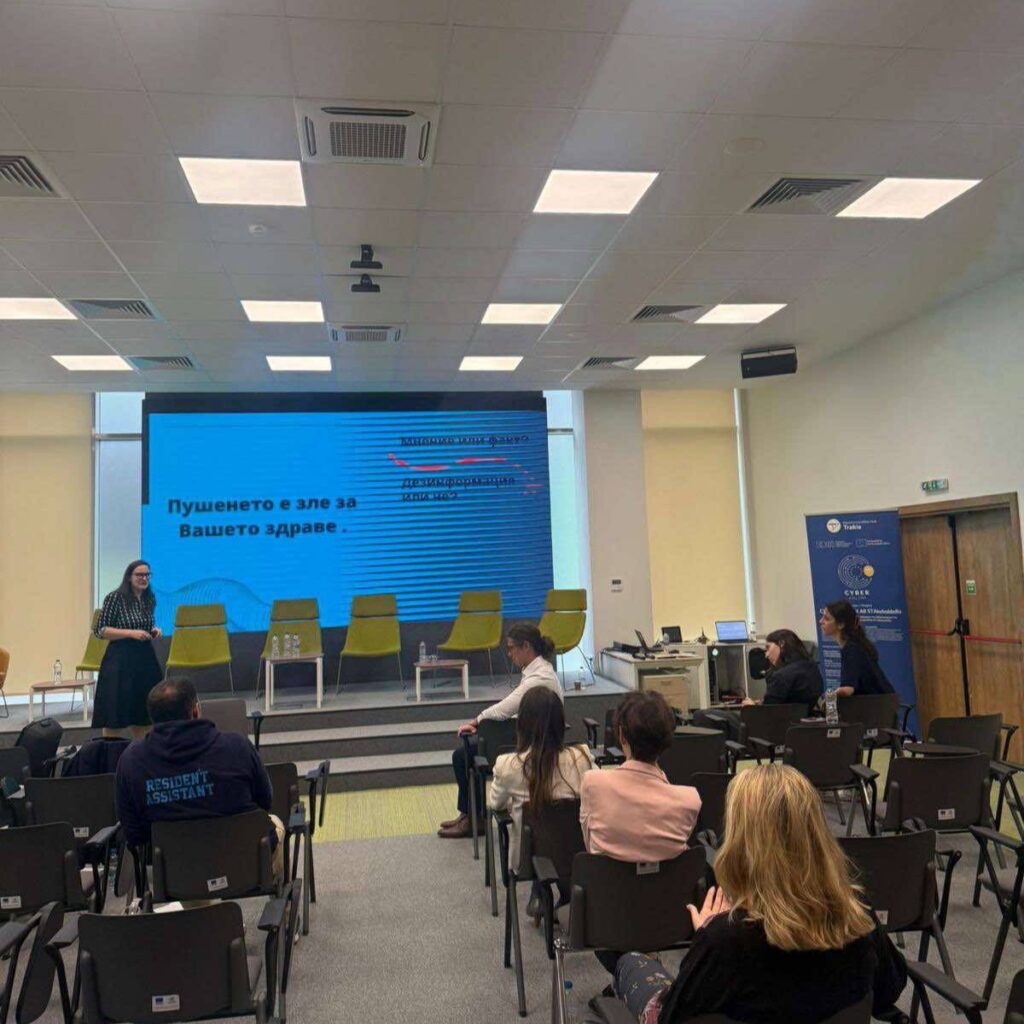
The workshop “Cyber Threat Risk Assessment and Crisis Management“, led by Petar Kanchev, Head of Educational Programs, EDIH “Trakia”, was dedicated to identifying threats and developing strategies for responding to cyber incidents.. Participants had the opportunity to work through real scenarios and practice rapid response approaches, including basic crisis management principles and risk assessment simulations.
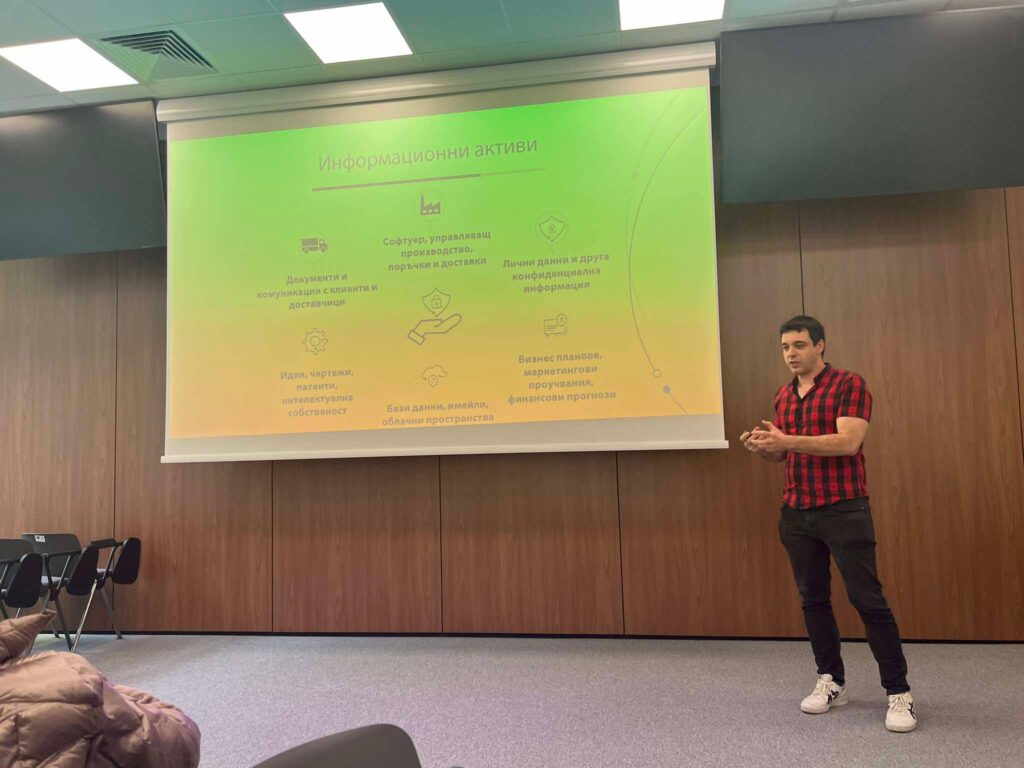
Both workshops demonstrated the importance of training in digital security and critical thinking not only theoretically, but also through interactive, practical formats.that encourage active participation and real-life case studies. The workshops reinforced the belief that only through joint efforts between the academy, technology experts and young people can build sustainable mechanisms to tackle misinformation and digital risks.
The day ended with a webinar on business partnerships in “green cybersecurity”, led by the head of EDIH “Trakia” Dr. Hristian Daskalov.
The second day of the European Digital Innovation Days in Education kicked off with an inspiring discussion in two consecutive sessions on innovative technology solutions and digital transformation in the learning process.
The panel “Technology Solutions for Education”, moderated by Angel Georgiev, founder of Daskal.AI, was also attended by Spaska Tarandova, Executive Director of Global Libraries Foundation, Petar Kanchev, Head of Educational Programs, EDIH “Trakia”, Svetlin Nakov, co-founder of SoftUni and Ivan Draganov, Project Manager, GATE Institute.
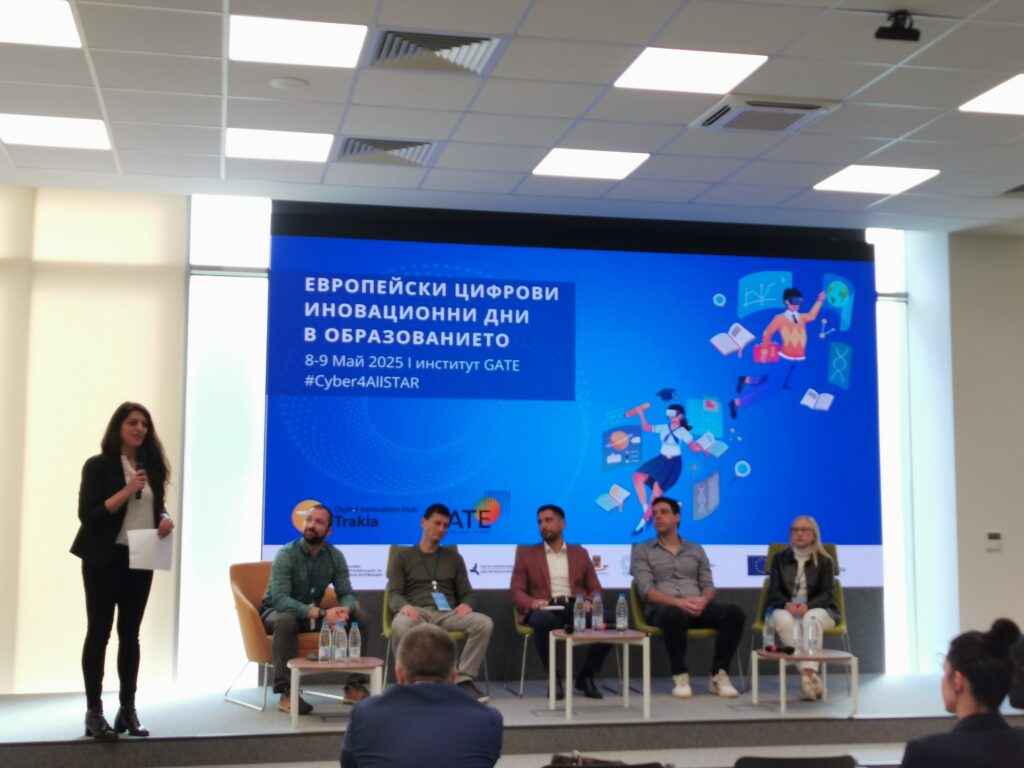
The panelists presented best practices and innovative approaches for implementing digital tools in the learning environment – from modern learning platforms to technologies for digital access and student engagement. The need for innovative pedagogy to accompany technology, and the role of partnerships between the public, private and academic sectors.
The panel “Online Learning Environment – How Technology is Changing the Learning Process” was attended by Ivo Rusev, Chief Commercial Officer of Telelink Business Services, Ivo Blagoev, Director of educational platform Contipso, Yanislav Rusev, representative of EdTech Bulgaria, English Motivator and Stanislav Atanasov, Head of Cyber Polygon, EDIH “Trakia”.
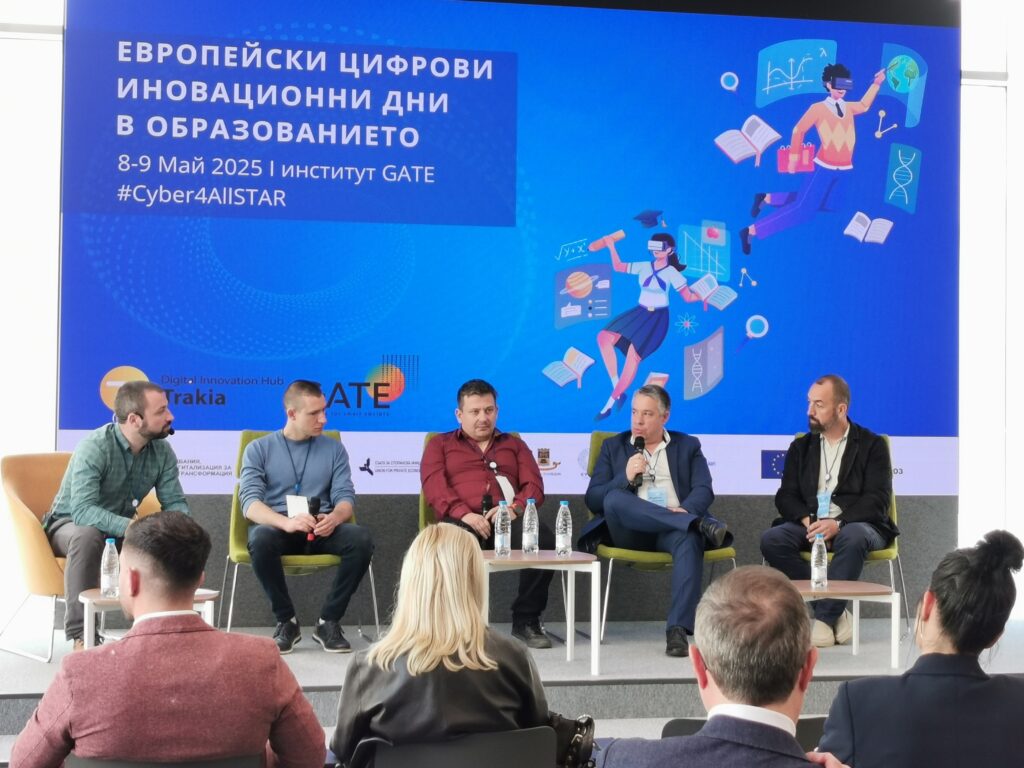
This panel examined how new technologies, incl. AI based instruments, virtual classrooms and interactive content are transforming the role of the teacher and the way students learn. Panelists focused on the challenges of digital inclusion, the security of the learning environment and the need for more personalised and accessible content.
Together, the two discussions highlighted that the future of education is about the balance between innovation and inclusion, as well as the sustainable building of digital skills in teachers and learners.
Special attention was paid to the topic “Cybersecurity for Higher Education“, which brought together experts from academia and industry to discuss pressing issues related to protecting university digital environments and data. The session was moderated by Assoc. Eng. Boyan Zhekov, Head of the Master’s Program “Cyber Security and Digital Forensics” at UniBIT, who introduced the participants to the main challenges related to the protection of the information infrastructure of universities and the need to build a sustainable security culture in the academic environment.
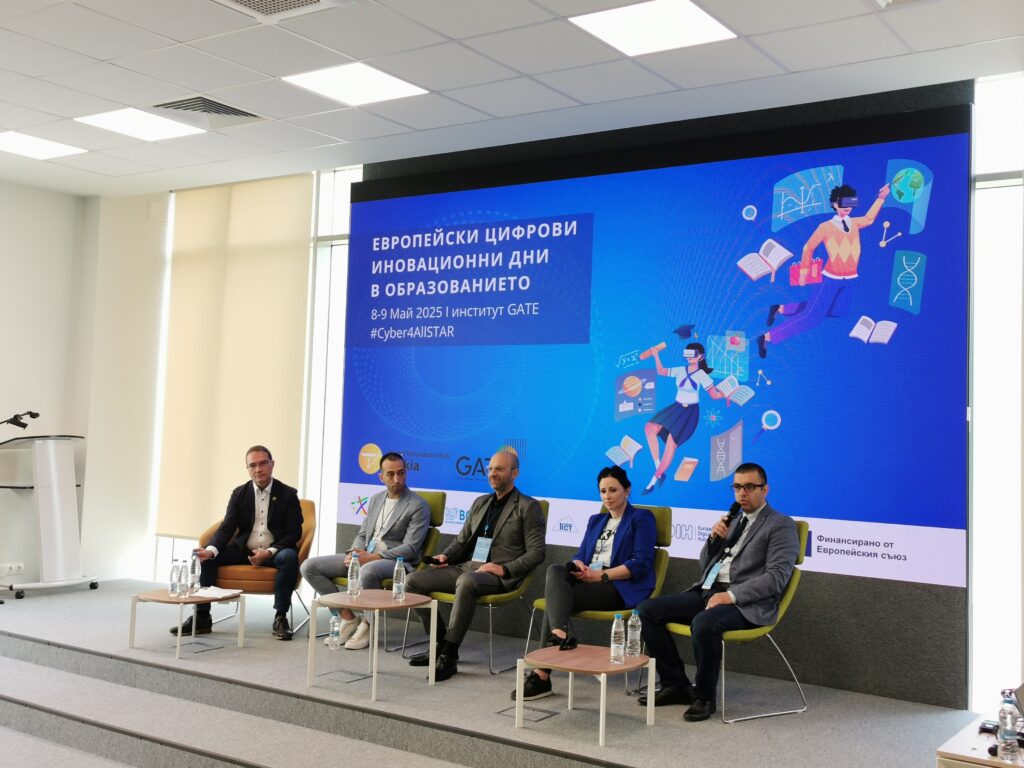
Panelists in this discussion were Prof. Dr. Ilin Savov, Trakia University – Stara Zagora, Assoc. Prof. Dr. Eng. Ivan Stankov, Department of Cybersecurity, Faculty of Telecommunications, TU – Sofia, Kiril Grigorov, University of Plovdiv “Paisii Hilendarski” and Neika Kisova, Public Sector Account Manager, Fortinet. They discussed the vulnerabilities and threats to universities’ digital infrastructure, the importance of cybersecurity training for IT professionals, faculty and students, best practices for incident management, protection of personal data and information resources, and opportunities for partnerships between higher education institutions and companies providing cybersecurity technology and training.
Panelists emphasized the need to integrate cybersecurity not only as a technological, but also as a cultural and educational priority in higher education. Particular attention was paid to the need for modern curricula, practical training and raising awareness among students about threats in the digital space.
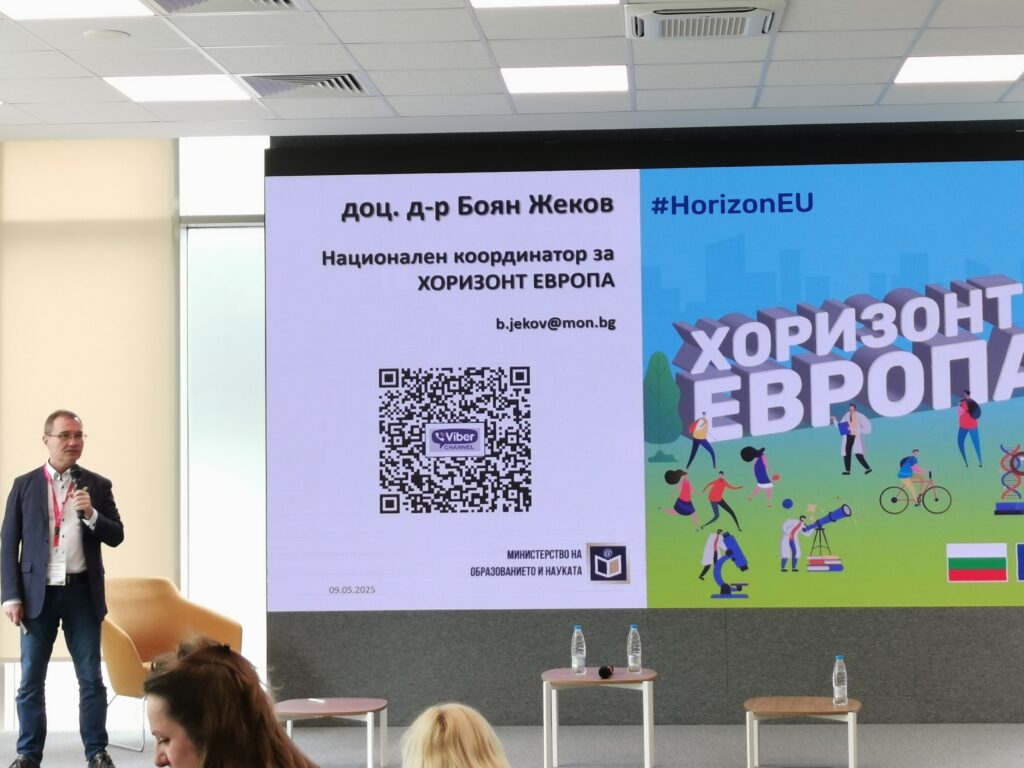
The afternoon session of the second day of the “European Digital Innovation Days in Education” was dedicated to the two key pillars of education modernisation – funding and technology. The presentations were divided into two thematic panels that presented opportunities for support through national and European programmes and concrete solutions from leading technology companies.
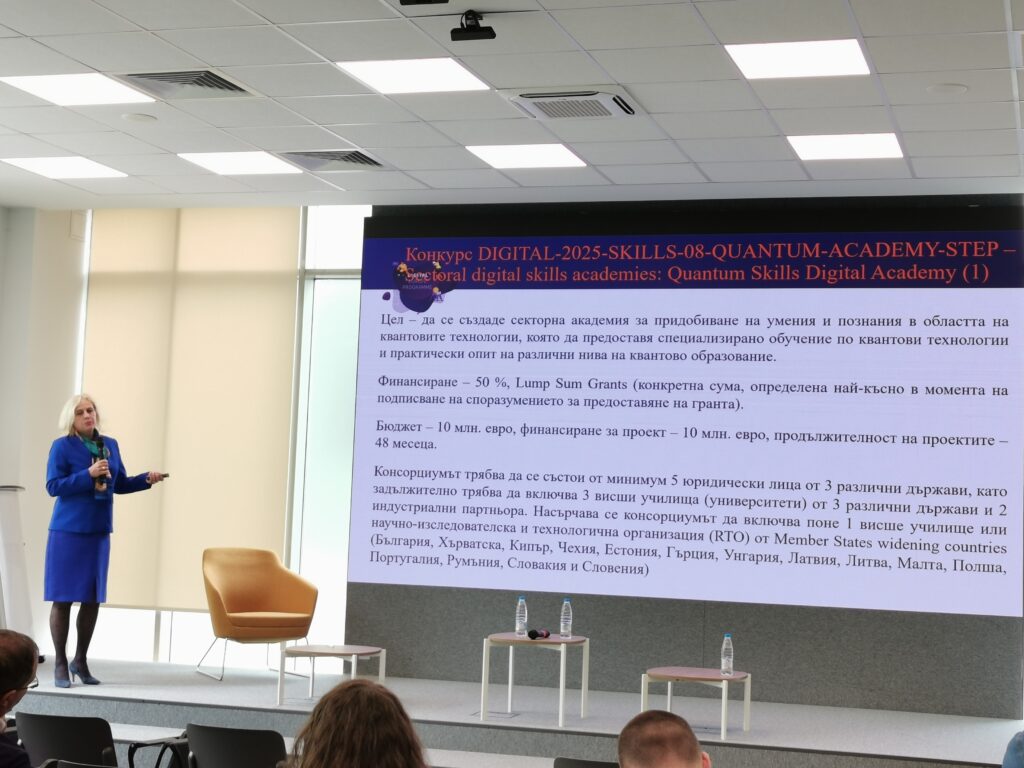
The panel “Financial support for modern and technological education” was moderated by Dr. Rumiana Atanasova. The presenters Dochka Vassileva , Head of Information and Project Financing Department, Fund of Funds in Bulgaria, Assoc. Boyan Zhekov , National Coordinator of Horizon Europe , Ministry of Education and Science and Eli Kaneva , National Contact Person for Digital Europe , Ministry of Transport and Communications, focused on the presentation of current and upcoming funding opportunities for projects in the education sector, support for the implementation of innovations and digital technologies through European programs, as well as guidelines for applying for Digital Europe, Horizon Europe and other instruments.
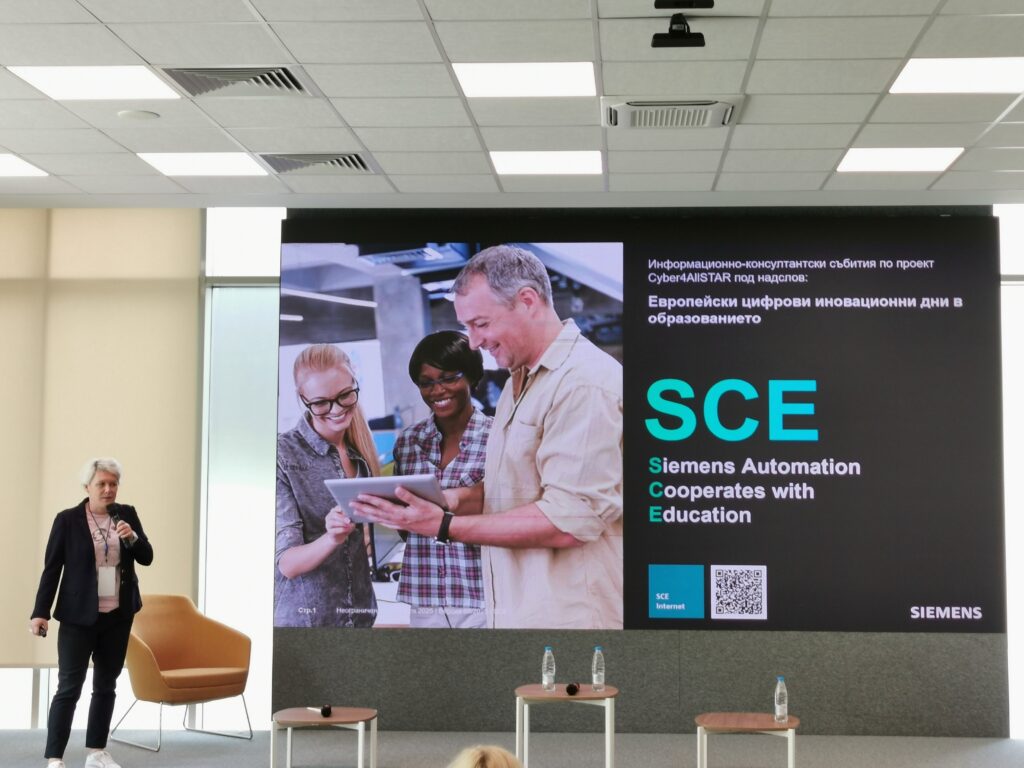
The second part of the panel was dedicated to Technology Support and Solutions. Presenters were Raina Dimitrova from Siemens Bulgaria, Pavlin Kaldamov, Technical Engineer at Fortinet, Nesin Veli, CEO of Identrics and Atanas Semerdzhiev, VP Learning & Development, Wiser Technology and Yani Yanev. They presented best practices from their work with higher education institutions, technological innovations that support the digitalization of the learning process and collaborations between educational institutions and technology companies in the development of joint solutions.
The panel’s conclusion was clear: modern education needs strategic funding and effective technology integration. The examples presented by the public and private sectors showed how partnerships between government, business and academia can accelerate digital transformation in education.
Before the start of the online session in the form of a webinar, the HoloMedical project, presented by Bilyana Nikolaeva, presented the innovations in the medical sector through the use of 3D visualizations. This will give advancement among future doctors to view and understand the complex structure of the human body. Along with this session, another solution joined the audience in the form of VRExpress, presented by its founder Georgi Stoyanov.
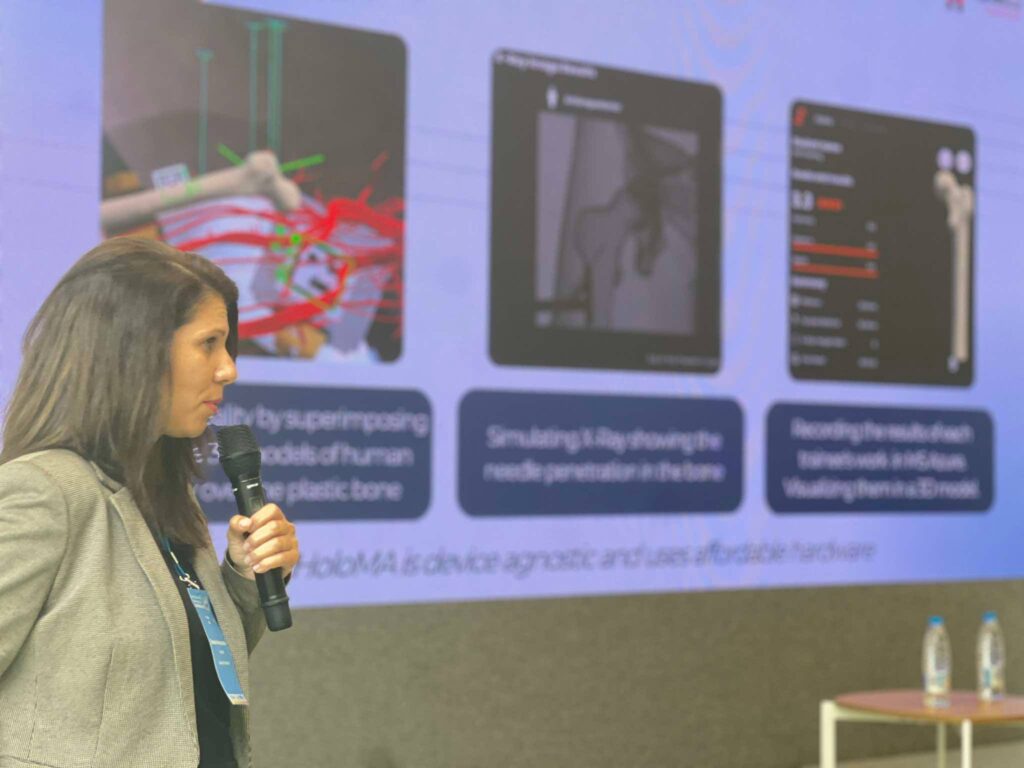
The event concluded with an online webinar on sustainable development through cyber security, moderated by Dr. Hristian Daskalov.
“European Digital Innovation Days in Education” showed the need for coordinated efforts between institutions, business and academia to develop the skills and tools needed for the future of digital education in Bulgaria and Europe.

